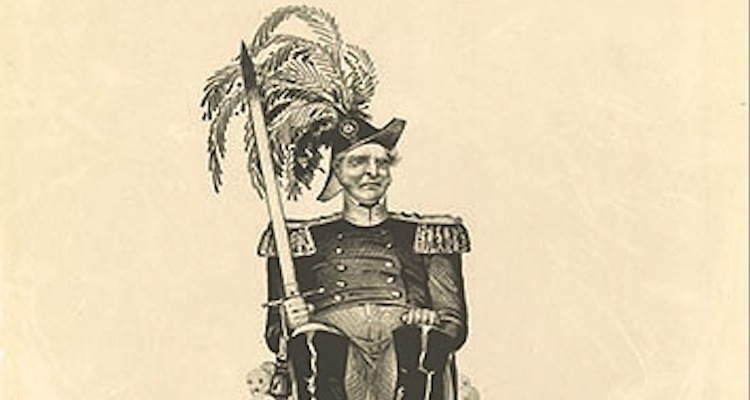Only a legacy of battlefield butchery is needed to become a Whig candidate for president, according to this 1848 campaign poster. The man in the plumed hat is most likely General Winfield Scott, who had racked up victories in the Mexican War—and distinguished himself ever since the War of 1812 where he first made his name. Scott would lose his bid for the presidency in 1848 to Zachary Taylor and in 1852 to Franklin Pierce, both subordinates to Scott in the Mexican War. Yet those political failures never obscured Scott’s military distinctions. At 6 feet, 4 inches, he towered over his peers, and his career, serving 14 different presidents over 50 years, overshadowed all others. Throughout, he weathered accusations of treason, misconduct and overreach. Few Americans with a character so flamboyant and contributions so monumental remain so unfamiliar to the public. By the start of the Civil War, Scott weighed nearly 300 pounds, suffered from dropsy and gout, and had to be carried from place to place on a door. These physical limitations, however, did not diminish his insight, which proved sharp enough to spot Southern sympathizers in the federal government, warn that secession would lead to a lengthy war and put forth the blockade strategy that would ultimately end the rebellion. Scott’s greatest legacy was the training of career soldiers and, ironically, many of the talented generals in the Civil War, including Stonewall Jackson and George McClellan, had either studied with him at West Point or had served under him in Mexico. West Point cadet Ulysses S. Grant recalled Winfield Scott as “the finest specimen of manhood my eyes ever beheld.” Two decades later, in 1861, when the aging Scott had to choose a commander for the Union Army, he selected the man who had served him so well as a staff officer in the Mexican War. The officer declined. His name was Robert E. Lee.
Related stories

Portfolio: Images of War as Landscape
Whether they produced battlefield images of the dead or daguerreotype portraits of common soldiers, […]

Jerrie Mock: Record-Breaking American Female Pilot
In 1964 an Ohio woman took up the challenge that had led to Amelia Earhart’s disappearance.

This Patient Rider Spent Months Retracing the Pony Express on Horseback
In 2019 Will Grant embarked on a 142-day, 2,000-mile horseback journey from the Pony Express stables in St. Joseph, Mo., to trail’s end in Sacramento, Calif.

10 Pivotal Events in the Life of Buffalo Bill
William Frederick Cody (1846-1917) led a signal life, from his youthful exploits with the Pony Express and in service as a U.S. Army scout to his globetrotting days as a showman and international icon Buffalo Bill.

